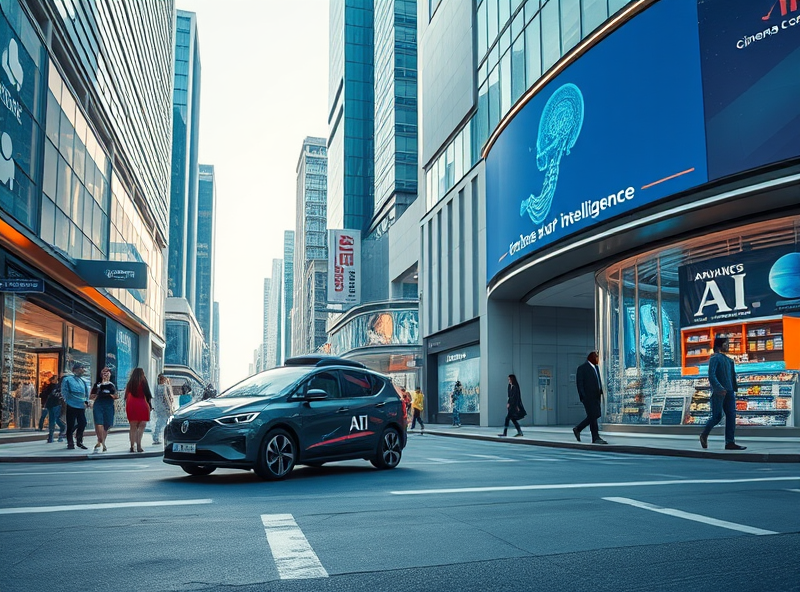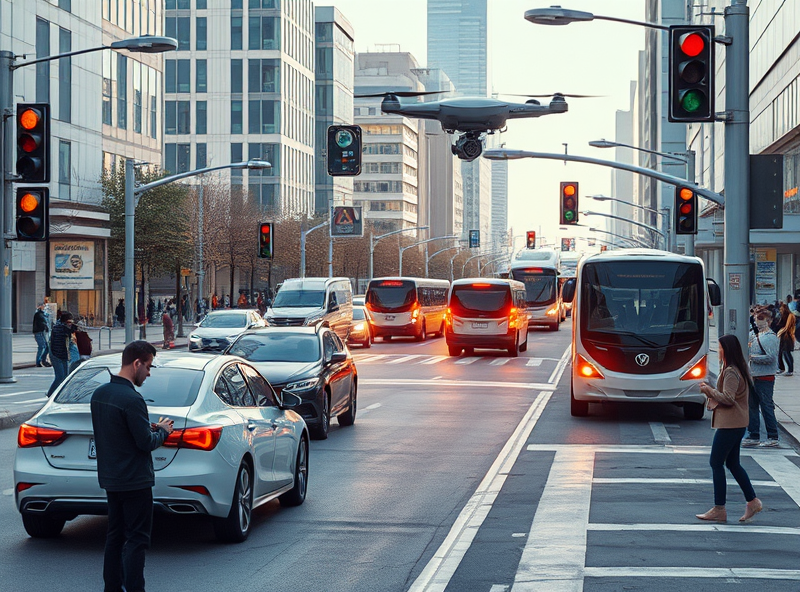
How AI is Transforming Daily Life: Practical Applications and Benefits
AI Revolution in Transportation

Artificial Intelligence (AI) is reshaping the transportation industry in ways that make our daily lives more efficient, safer, and environmentally friendly. One of the most significant advancements is the development of autonomous vehicles. Self-driving cars, powered by AI, use sensors, cameras, and machine learning algorithms to navigate roads, avoid obstacles, and make real-time decisions. This technology not only reduces human error, which is a leading cause of accidents, but also enhances mobility for individuals who are unable to drive, such as the elderly or disabled.
AI is also transforming public transportation systems. Smart traffic management systems analyze real-time data to optimize traffic flow, reduce congestion, and improve fuel efficiency. For instance, AI-powered traffic lights can adjust their timing based on current traffic conditions, minimizing delays and reducing emissions. Additionally, ride-sharing platforms like Uber and Lyft use AI algorithms to match passengers with drivers efficiently, predict demand, and even suggest optimal routes to save time and fuel.
Moreover, AI is playing a crucial role in logistics and freight transportation. Companies are leveraging AI to optimize delivery routes, predict maintenance needs for vehicles, and ensure timely deliveries. This not only cuts costs but also reduces the environmental impact of transportation. As AI continues to evolve, we can expect even more innovative solutions that will revolutionize how we move and connect with the world around us.
AI in Retail and E-commerce

Artificial Intelligence is revolutionizing the retail and e-commerce industries, making shopping experiences more personalized, efficient, and enjoyable for customers. One of the most prominent applications is AI-driven recommendation systems. These systems analyze customer behavior, preferences, and purchase history to suggest products tailored to individual tastes. For example, when you shop online, the ‘You may also like’ or ‘Recommended for you’ sections are powered by AI algorithms, which enhance your shopping experience by saving time and helping you discover products you might love.
AI is also improving inventory management for retailers. Predictive analytics powered by AI helps businesses forecast demand, ensuring that popular items are always in stock while reducing overstock of less popular products. This not only optimizes operations but also minimizes waste, contributing to more sustainable practices.
Moreover, AI-powered chatbots and virtual assistants are transforming customer service. These tools provide instant support, answer queries, and even assist with purchases 24/7, ensuring a seamless shopping experience. Retailers are also leveraging AI for dynamic pricing, where prices are adjusted in real-time based on demand, competition, and other factors, ensuring competitive pricing for customers.
Overall, AI is making retail and e-commerce smarter, more efficient, and customer-centric, ultimately benefiting both businesses and consumers.
AI Driving Financial Innovation

Artificial Intelligence (AI) is revolutionizing the financial sector in ways that are both practical and transformative. One of the most significant applications is fraud detection. AI algorithms can analyze vast amounts of financial data in real-time, identifying unusual patterns or anomalies that could indicate fraudulent activity. This not only enhances security but also builds trust among consumers. Additionally, AI-powered robo-advisors are becoming increasingly popular. These digital tools provide automated financial advice tailored to an individual’s goals, risk tolerance, and investment preferences. By making financial planning more accessible and cost-effective, AI is empowering people to take control of their financial futures. Moreover, algorithmic trading, driven by AI, enables faster and more accurate decision-making in stock markets, optimizing investment strategies and improving market efficiency. In short, AI is not just transforming how financial institutions operate but also making financial services more user-friendly and secure for everyone.
AI Shaping Entertainment

Artificial Intelligence is revolutionizing the entertainment industry in ways that are both exciting and practical. For instance, AI is now being used to create personalized content recommendations on streaming platforms like Netflix and Spotify. By analyzing your viewing or listening habits, AI algorithms can suggest movies, shows, or songs that align with your preferences, saving you time and enhancing your experience. Moreover, AI is playing a significant role in content creation. Tools powered by AI can assist filmmakers, writers, and artists by generating scripts, editing videos, or even creating lifelike virtual characters. In gaming, AI creates smarter, more adaptive NPCs (non-player characters) that make gameplay more immersive and challenging. Lastly, AI-driven virtual reality (VR) and augmented reality (AR) experiences are becoming more advanced, offering users a chance to interact with digital worlds in ways that feel incredibly real. These innovations not only make entertainment more engaging but also open up new possibilities for creativity and storytelling.




